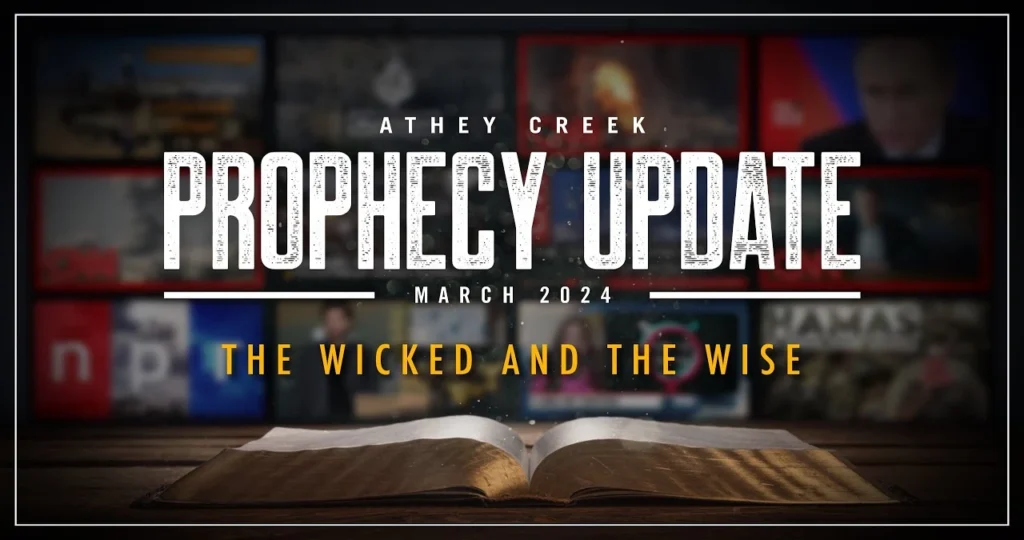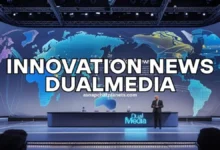Prophecy News Watch: Middle East Tensions and Ezekiel’s War – Are We Seeing the Fulfillment of Biblical Prophecy?

Introduction
The Middle East has long been a focal point of global conflict, political intrigue, and spiritual significance. Prophecy News Watch For centuries, Bible scholars have pointed to this region as the epicenter of end-time prophecies, particularly the war described in Ezekiel 38-39—often referred to as “Gog and Magog” or Ezekiel’s War.
With rising tensions involving Israel, Iran, Russia, Turkey, and neighboring nations, many prophecy watchers are asking: Are current events setting the stage for this ancient biblical prediction? In this Prophecy News Watch analysis, we’ll examine:
- What Ezekiel’s War is and who the key players are
- How modern Middle East conflicts align with prophecy
- The role of Russia, Iran, and Turkey in end-time events
- Signs that this prophecy could be nearing fulfillment
- What this means for believers and the world
Understanding Ezekiel’s War: Gog, Magog, and the Coalition Against Israel

The Biblical Prophecy News Watch in Ezekiel 38-39
Ezekiel 38 describes a massive invasion against Israel led by a coalition of nations. The key figures mentioned are:
- Gog of Magog – Often interpreted as a leader from the north (possibly Russia or a broader alliance).
- Magog, Meshech, Tubal, Persia, Cush, Put, Gomer, and Beth-Togarmah – Ancient names corresponding to modern nations like Russia, Iran, Turkey, Sudan, Libya, and parts of Eastern Europe.
The Prophecy News Watch states that these nations will launch a surprise attack on Israel, but God will supernaturally intervene, causing chaos among the invaders and leading to their defeat.
Key Characteristics of Ezekiel’s War
- A Coalition of Nations from the North and Surrounding Regions
- Russia (traditionally linked to “Rosh,” “Meshech,” and “Tubal”)
- Iran (“Persia”)
- Turkey (“Gomer” and “Beth-Togarmah”)
- Libya (“Put”)
- Sudan (“Cush”)
- Possibly other allies like Syria or Iraq
- An Attack on a “Peaceful and Unsuspecting” Israel
- Ezekiel 38:11 suggests Israel will be dwelling “securely” before the attack.
- This could imply a period of relative peace before the conflict erupts.
- Divine Intervention Leading to the Coalition’s Destruction
- Earthquakes, infighting, and supernatural disasters (Ezekiel 38:19-22).
- The defeat will be so decisive that it takes seven years to burn the weapons (Ezekiel 39:9).
Current Middle East Tensions: A Prophetic Setup?
1. Russia’s Growing Influence in the Middle East
- Russia has deepened military ties with Syria, Iran, and Turkey.
- The Wagner Group and Russian forces operate near Israel’s borders.
- Moscow has historically been seen as a possible “Gog” figure in prophecy.
2. Iran’s Hostility Toward Israel
- Iran funds Hezbollah, Hamas, and other anti-Israel groups.
- Nuclear ambitions and threats to “wipe Israel off the map” align with Ezekiel’s prophecy of Persia (Iran) attacking.
- Recent drone and missile attacks show escalating tensions.
3. Turkey’s Shift Toward an Anti-Israel Stance
- Under Erdogan, Turkey has moved away from its NATO alliance, strengthening ties with Russia and Iran.
- Turkish leaders have made increasingly hostile statements against Israel.
- Historically, Turkey fits the descriptions of “Gomer” and “Beth-Togarmah.”
4. The Abraham Accords and Israel’s “False Security”?
- The 2020 Abraham Accords brought temporary peace between Israel and some Arab nations.
- However, Iran, Turkey, and their proxies remain vehemently opposed.
- Could this period of relative calm precede an unexpected attack?
Is This the Final Fulfillment or a Precursor?
Some scholars argue that Ezekiel’s War happens before the Tribulation, while others believe it occurs midway or at the end. Key questions include:
- Will this war trigger the rise of the Antichrist’s peace deal (Daniel 9:27)?
- Is Russia’s involvement a sign of the “Kings of the East” (Revelation 16:12)?
- Could this conflict lead to the rebuilding of the Third Temple?
While we cannot be dogmatic, the alignment of current events with Ezekiel’s prophecy is undeniable.
What Should Believers Do?
- Stay Watchful – Jesus warned to “watch and pray” (Mark 13:33).
- Share the Gospel – Prophecy should drive us to evangelism.
- Avoid Fear – God promises protection for His people (Psalm 91).
- Study Scripture – Understand the times (1 Chronicles 12:32).
Conclusion: Are We on the Brink of Ezekiel’s War?
The Middle East is a powder keg, with alliances shifting in ways that eerily match Ezekiel’s ancient words. While no one knows the exact timing, the convergence of Russia, Iran, Turkey, and other players suggests we are in a critical prophetic season.
As Prophecy News Watch continues monitoring these developments, one thing is clear: Bible prophecy is not just history—it’s unfolding before our eyes.
Are you ready?
Further Study & Resources
- Book Recommendation: The Ezekiel Option by Joel C. Rosenberg
- Related Prophecies: Daniel 11, Revelation 16, Zechariah 12-14
- Latest News: Follow updates on Israel-Iran tensions, Russian military moves, and Middle East alliances.
Would you like additional insights on specific aspects of this prophecy? Let us know in the comments!
1. What is Ezekiel’s War, and where is it mentioned in the Bible?
Ezekiel’s War, also known as the Gog and Magog prophecy, is described in Ezekiel 38-39. It foretells a massive coalition of nations (including Russia, Iran, Turkey, and others) launching a surprise attack on Israel, only to be supernaturally destroyed by God.
2. Is Russia really the “Gog” mentioned in Ezekiel’s prophecy?
Many Bible scholars believe “Gog of Magog” refers to modern-day Russia or a broader northern alliance based on ancient names like “Rosh,” “Meshech,” and “Tubal.” Russia’s military involvement in Syria, Iran, and the Middle East adds credibility to this interpretation.
3. How do current Middle East tensions align with Ezekiel’s prophecy?
Today, we see:
- Russia strengthening ties with Iran and Turkey.
- Iran threatening Israel and funding terrorist proxies.
- Turkey shifting toward an anti-Israel stance.
- These developments closely match the Ezekiel 38 alliance, suggesting we may be witnessing the early stages of this prophecy.
4. Could the Abraham Accords be a sign of Israel’s “false security” before Ezekiel’s War?
Ezekiel 38:11 says Israel will be “dwelling securely” before the attack. The Abraham Accords (2020) brought temporary peace between Israel and some Arab nations, but Iran and its allies remain hostile. This could set the stage for a sudden conflict.
5. What should Christians do in light of these prophecies?
Believers should:
- Stay watchful (Mark 13:33).
- Share the Gospel—Prophecy News Watch should motivate evangelism.
- Avoid fear—God promises protection (Psalm 91).
- Study Scripture to understand the times (1 Chronicles 12:32).





